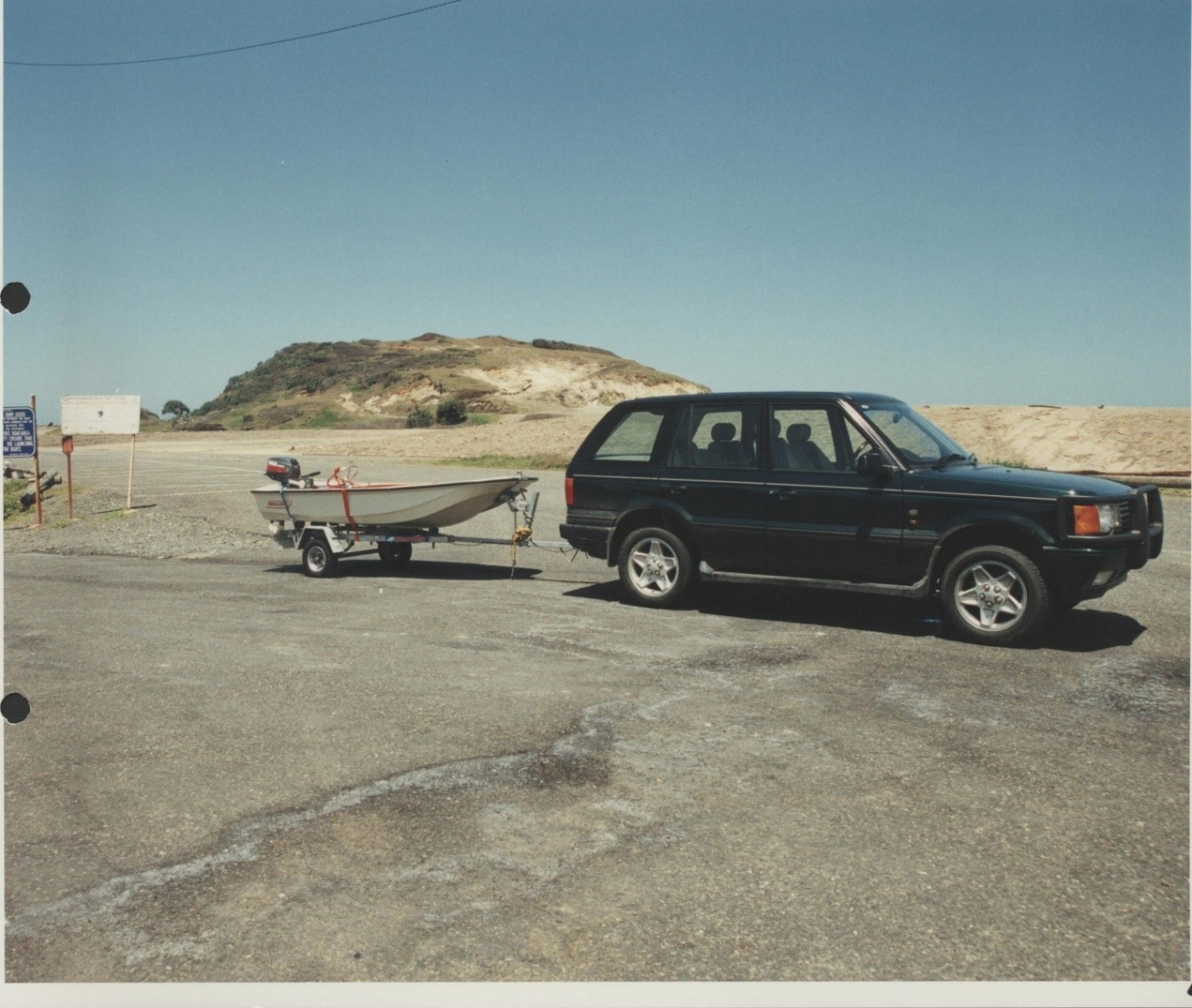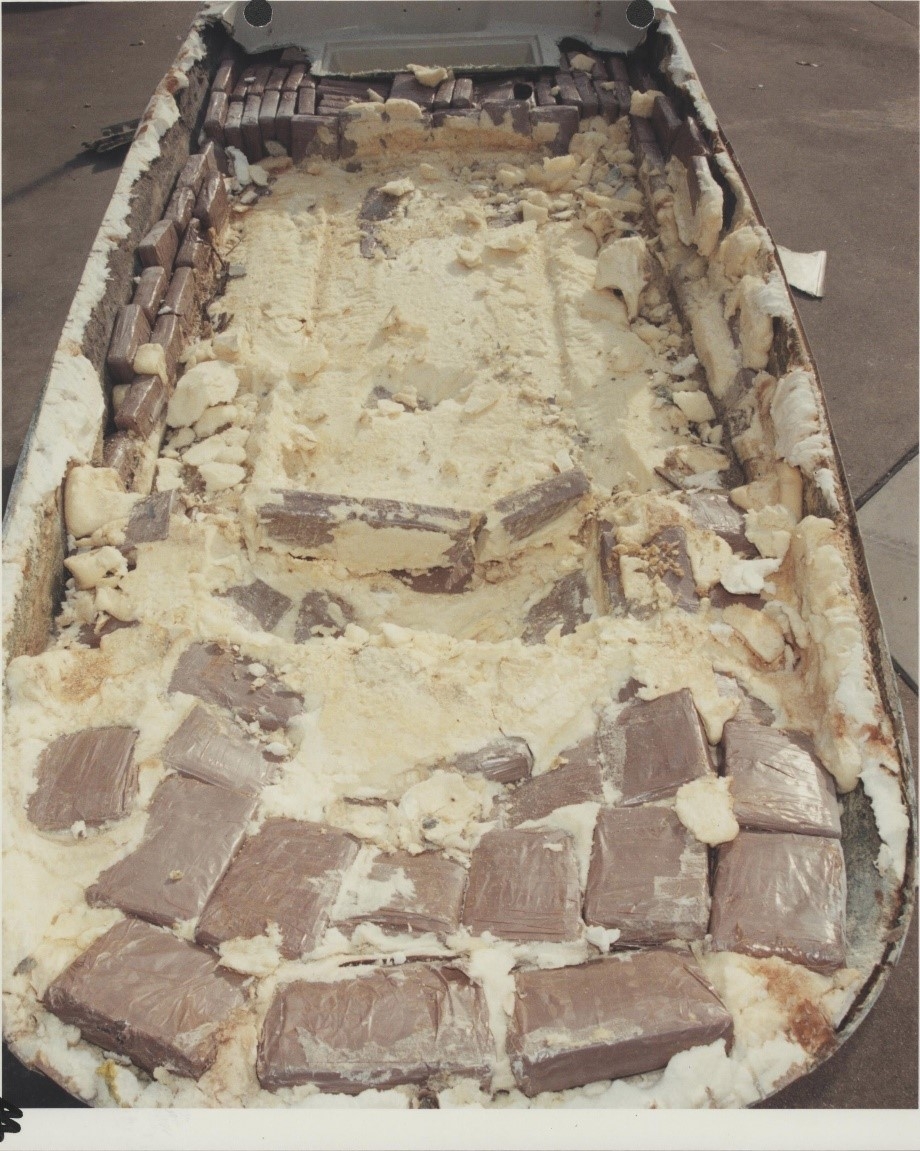Setting sail for Australia
Gregory Paul Meggett knew how to sail his 56-foot ketch. A 2-masted Venezuelan sailboat, named the Maeva Chiqui. The 28-year-old had spent time in the South African Naval Reserves. He had sailed from Florida to Australia at least once before in a similar-sized yacht. He also sailed to Spain on multiple occasions.
Sailing from Miami past the Caribbean and through the Panama Canal, Meggett stopped in Panama City to prepare. It would be a 4-month long voyage. He offered 2 American backpackers $2,000 each to help him crew the boat to Australia. An adventure too good to refuse for the young men.
Then at a bar in Panama City with his business partner, Robert Scott Flavel, Meggett met an Australian couple planning a similar voyage. Flavel was a dual Australian and British passport holder, who said he had brokered the deal to sell the Maeva Chiqui to a buyer in Australia. Meggett was his business partner. The couple had been living in Florida and were fulfilling a lifelong dream to sail home to Australia, with their 4 young children. The family of 6 would provide Meggett with the perfect shadow support. So would his newfound crew mates. All would unknowingly help legitimise his cover story. Sailing the Maeva Chiqui to its new owner in Australia.
From Panama City the 2 yachts set sail. They stopped at the Galapagos Islands, the Marquesas Islands in French Polynesia, and in Tonga. They followed a course Meggett had plotted for the North Coast of NSW.
Following the money and leads
In February 1998, AFP officers in Newcastle started using new Australian Transaction Reports and Analysis Centre (AUSTRAC) technology. The systems and software tracked financial transactions. It would flag structured or suspicious money movement. When an AFP officer in Newcastle identified a $6 million transaction out of Adelaide, AUSTRAC raised a flag. Suspected to be from the sale of cocaine, the money landed in financial institutions overseas.
The AFP seized a further $550,000, allegedly belonging to a 33-year-old Adelaide night club owner. The Adelaide man was Jose Manuel Campillo. The AUSTRAC leads revealed a plan to import a large quantity of cocaine from South America on board a yacht called the Maeva Chiqui.
At the same time, Customs officers up and down the North Coast of NSW had been reporting suspicious activity to the AFP. When one officer heard of a boat moored at a Forster marina since January, this crucial lead was where Operation Gentle began.
Marina staff had alerted the officer to suspicious activities involving a boat called the Tvareg, a 16-metre sloop. The owners of the boat had paid cash for the mooring. They paid for 3 months in advance. The AFP would soon link the Tvareg to Jose Campillo and Robert Flavel.
When lighting strikes
Working with international authorities the AFP was also tracking the Maeva Chiqui from the moment it left Panama City. But soon after departure, the boat was struck by lightning. The storm damaged the GPS, rigging and electrical systems. It also damaged covert surveillance equipment. The damages delayed the arrival of the boat. The lack of surveillance on the boat meant officers relied on tracking Campillo in Australia instead. Campillo was now travelling with a 37-year-old Spanish woman named Beatriz Gonzales-Betes Suarez.
In November, Campillo and Suarez travelled to Lord Howe Island. They were waiting for the Maeve Chiqui. At the same time, Flavel arrived in Australia by plane - to allegedly oversee the importation of the cocaine.
Under surveillance by the AFP, Campillo and Suarez returned to Sydney from Lord Howe Island and met with Flavel. Suarez and Flavel then travelled to Coffs Harbour together. Campillo met them in Coffs Harbour after picking up a small boat trailer at a house at Taree. The house was soon linked to both Campillo and Flavel.
In Coffs Harbour, Flavel waited with his girlfriend. They snorkelled and went sightseeing. Campillo and Suarez also waited for news from the Maeve Chiqui.
And all that time, AFP officers listened to their conversations and watched. Surveillance was in their cars, hotel rooms and phones.
Everyone was waiting to hear from Meggett on board the Maeva Chiqui.
A Customs plane and boats searched to find the Maeva Chiqui before its arrival in Coffs Harbour. It was finally sighted, 2 days sailing away from the port. The wait gave AFP and Customs officers more time to gather evidence on Flavel, Campillo and Suarez.
Then the phone rang.
Meggett called Flavel on a satellite phone and confirmed the Maeva Chiqui was heading to Coffs Harbour. AFP officers were listening to the call. Operation Gentle was about to be resolved.
Waiting and watching in Coffs Harbour
More than 100 AFP and Customs officers took part in Operation Gentle. Many had waited in Coffs Harbour for over a week. Hotel rooms, cars and phones were all bugged. Surveillance teams took watch on constant rotation at the marina and throughout Coffs Harbour.
The Maeva Chiqui arrived in Coffs Harbour on 5 December 1998. An undercover AFP agent, posed as a quarantine officer, boarded the boat before it entered the marina to gather intelligence.
When it finally moored Flavel, Campillo and Suarez met with Meggett. Surveillance continued from a number vantage points around the marina, as dozens of officers watched and waited. They waited for 2 days.
Then on 7 December 1998 Campillo and Suarez arrived at the boat ramp with an empty boat trailer.
On the other side of the marina at the Maeva Chiqui, Meggett was making plenty of noise lowering the Boston Whaler into the water. As soon as it hit the water, every officer watching realised something heavy was in that small boat.
As Meggett slowly made his way to the boat ramp, water lapped at the gunnels of the Boston Whaler. Campillo winched the boat onto the trailer and AFP officers in camouflage sprang into action to arrest the trio. At the same time, Flavel was arrested at Coffs Harbour Airport, about to board a plane to Sydney.
Seizing the goods and sentencing
Operation Gentle was a joint investigation involving federal agents from the AFP and Customs in 1998 and 1999. It included officers from Newcastle, Sydney, Adelaide, Melbourne, Brisbane, and Canberra. Officers from international locations were also involved, and interviews were conducted in Australia, the US and the UK.
As agents cut through the fibreglass of the Boston Whaler, they revealed cocaine sandwiched between the hull and decking. A total of 225 one-kilogram blocks of cocaine lined the hull of the boat. In some places, the blocks were 3 layers deep. The cocaine seizure was the largest in Australia at the time, with an estimated street value of $980 million.
Suarez and Flavel were charged with being knowingly concerned in the importation of a commercial quantity of cocaine. Campillo was charged with the same offence plus charges of possession of cocaine, and money laundering. The skipper of the Maeve Chiqui, Meggett was charged with importing a prohibited import. The 4 appeared in Coffs Harbour Local Court and were remanded in custody.
Jose Manuel Campillo received life imprisonment with a non-parole period of 24 years.
Robert Scott Flavel received a life sentence to serve 25 years.
Spanish national Beatriz Gonzales-Betes Suarez was sentenced to life to serve 22 years. She was sent home to Madrid in 2005 to serve out her sentence.
Gregory Paul Meggett cooperated with police and received 10 years to serve 6.
The Australian family who had travelled alongside Meggett and the Maeve Chiqui from Panama, and the 2 American crew members, were unaware of what was stowed away on board the boat. They all assisted police with investigations.
The 225 kg of cocaine was destroyed on 25 February 1999.
The destruction of the cocaine was witnessed by then Minister for Justice and Customs, Senator Amanda Vanstone, alongside AFP Eastern Region General Manager Bob McDonald.
The Boston Whaler boat, and Booker trailer, used in the attempted importation of 225 kg of cocaine are on display at the AFP Museum.



